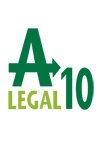Best Brokerage Lawyers in Bree
Share your needs with us, get contacted by law firms.
Free. Takes 2 min.
Free Guide to Hiring a Real Estate Lawyer
List of the best lawyers in Bree, Belgium
About Brokerage Law in Bree, Belgium
Brokerage covers a range of intermediary services - most commonly real estate brokerage and financial brokerage. In Bree, which is in the Flemish Region of Belgium, brokerage activity must comply with federal and regional rules that govern licensing, conduct, consumer protection, taxation and the role of other professionals - such as notaries and banks - in completing transactions. Practical consequences include requirements for registration of professionals, written mandates for brokers, duties of information and transparency, and obligations related to anti-money-laundering and client funds. Understanding these rules helps buyers, sellers, investors and brokers protect their rights and reduce transaction risks.
Why You May Need a Lawyer
A lawyer can protect your legal position, interpret complex regulatory rules, and represent you in disputes. Common situations in Brokerage where legal help is valuable include:
- Buying or selling property where the contract terms, warranties and transfer conditions need close review.
- Disputes with a broker about fees, mandates or alleged misrepresentation.
- Allegations of professional negligence or breach of duty by a broker.
- Questions about registration duties, tax consequences or structuring a purchase for tax efficiency and legal safety.
- Problems with due diligence - for example, discovering liens, zoning restrictions, easements or incorrect disclosures.
- Complex commercial brokerage transactions - such as business or asset sales where multiple contracts and securities are involved.
- Financial brokerage matters - disputes over investments, suitability of advice, or suspected fraud or misconduct by an investment intermediary.
- When formal complaints, mediation or court proceedings are required - a lawyer can prepare complaints, negotiate settlements, and litigate if necessary.
Local Laws Overview
Key legal aspects that are particularly relevant to brokerage in Bree include the following:
- Professional registration and regulation - Real estate agents in the Flemish Region are regulated by the Beroepsinstituut van Vastgoedmakelaars (BIV). Brokers must be registered and comply with professional rules, ethical obligations and continuing education requirements. Financial brokers and investment firms are regulated by the Financial Services and Markets Authority - FSMA.
- Written mandates and transparency - In many brokerage situations a written mandate or brokerage agreement is required or strongly advised. Such documents define the scope of the broker's authority, duration, fees and termination rules.
- Duties of information and care - Brokers owe duties to provide accurate information, to act in good faith, and to advise clients appropriately within the broker's expertise. Failure in these duties can give rise to compensation claims.
- Handling of client funds - Brokers often must comply with rules about client accounts, custody of client funds and traceability. Anti-money-laundering rules require identity checks and reporting of suspicious transactions.
- Role of notaries - In Belgium, transfer of immovable property is formalized by a notarial deed prepared by a notary. The notary handles title searches, ensures compliance with formal requirements, and registers the transfer with tax and land registration authorities.
- Registration duties, taxes and region-specific rules - Property purchases are subject to registration duties, local taxes and sometimes value-added tax in specific cases. These rates and exemptions are determined at the regional level - for Bree that means Flemish Region rules apply. Always check current regional rules when estimating costs.
- Consumer protection and dispute avenues - Consumers have specific protections, and disciplinary or complaint procedures are available through regulators like BIV for real estate agents and FSMA for financial intermediaries. Consumer organisations can also assist with advice and mediation.
Frequently Asked Questions
What is a brokerage mandate and do I need one in writing?
A brokerage mandate is an agreement that authorizes a broker to act on your behalf - for example to market and sell a property or to seek buyers. A written mandate clarifies the scope, duration, fees and cancellation terms, and it is strongly recommended. For many real estate transactions in Flanders a written mandate is standard practice and protects both parties.
How can I check if a real estate broker in Bree is properly registered?
Real estate brokers in Flanders must be registered with the BIV. You can ask the broker for their BIV registration number and professional card, and you can verify registration through official channels or by asking the broker to provide proof. A licensed broker must comply with the BIV code of conduct and will typically display registration information.
Who normally pays the broker fee in a property transaction?
Who pays the broker fee depends on the mandate. Fees can be paid by the seller, the buyer, or split between them. The mandate should state clearly who is responsible for the fees, the amount or calculation method, and when payment is due. Disputes often arise when the mandate is unclear, so get the terms in writing.
What should I do if I think a broker misled me or acted negligently?
If you suspect misrepresentation or negligence, collect all documents, communications and the mandate. Try to resolve the matter directly with the broker in writing. If that fails, you can file a complaint with the relevant regulator - BIV for real estate or FSMA for financial intermediaries - and seek legal advice about bringing a civil claim for damages or contract remedies.
Are brokers required to hold client money in a separate account?
Many professional rules require proper handling and record-keeping of client funds and in some cases the use of segregated or trust accounts. The exact requirements depend on the type of brokerage and the regulator. Ask the broker how client funds are held and request documentation that demonstrates compliance.
What is the role of the notary in a property sale in Bree?
The notary prepares the authentic deed of sale, verifies title and encumbrances, collects registration duties and ensures the legal transfer of ownership. The notary is an independent public officer who protects the transaction's legal validity. Parties usually sign a preliminary private agreement and later complete the transfer at the notary office.
Do I need a lawyer to buy property in Bree?
You are not required by law to hire a lawyer to buy property, but a lawyer can review contracts, perform or supplement due diligence, advise on tax consequences, and represent you in disputes. For complex transactions, purchases involving companies, inheritance matters or when you suspect legal issues, a lawyer is highly recommended.
What taxes and fees should I expect when purchasing property in Bree?
Property purchases involve registration duties and possibly other local taxes or fees. The rates and exemptions are determined by regional rules in Flanders. There are also notary fees and possible VAT in specific commercial situations. Because tax rules change, ask a lawyer or notary for a current cost estimate before completing the transaction.
How long does a typical property transaction take from mandate to transfer?
Timing varies with factors such as market conditions, whether a mortgage is needed, how quickly due diligence is completed, and the notary's schedule. A simple sale can take a few months from listing to final notarial transfer, while more complex deals can take longer. Plan for pre-sale checks, financing arrangements and mandatory notification periods.
What remedies are available if a broker refuses to return my property documents or funds?
If a broker refuses to return documents or funds, send a formal written request and retain proof. If the issue is not resolved, you can file a complaint with the regulator, seek provisional court measures to recover property or funds, and start civil proceedings for breach of contract or conversion. Speak to a lawyer promptly to secure evidence and to take appropriate legal steps.
Additional Resources
Below are organisations and public bodies that can help you find information or lodge complaints related to brokerage in Bree:
- Beroepsinstituut van Vastgoedmakelaars (BIV) - regulator for real estate agents in Flanders and a source for registration and disciplinary matters.
- Financial Services and Markets Authority - FSMA - regulator for financial and investment intermediaries and complaints about investment advice or brokers.
- Fednot - federation of notaries - a useful source to understand notarial procedures and the role of the notary in property transfers.
- Orde van Vlaamse Balies - the Flemish Bar Association - for finding a qualified lawyer and understanding professional rules for lawyers.
- Municipality of Bree - for local planning, permits, zoning and municipal information relevant to real estate transactions.
- Crossroads Bank for Enterprises - business registration information for verifying a broker's business identity.
- Consumer organisations - such as national or regional consumer protection groups - for advice on consumer rights and mediation.
- Ombudsfin or other financial ombudsman services - for out-of-court dispute resolution in financial and insurance matters.
Next Steps
If you need legal assistance with a brokerage matter in Bree, use this step-by-step approach:
- Gather documents - collect the brokerage mandate, correspondence, property deeds, inspection reports, payment receipts and any advertising or promises made by the broker.
- Verify the broker - ask for the broker's registration number and professional card and confirm registration with the relevant regulator for real estate or financial brokers.
- Prepare a clear summary - write a short timeline of events and the main legal concerns you have - this helps any professional evaluate your case quickly.
- Consult a lawyer - book an initial consultation with a local lawyer experienced in brokerage or real estate law. Ask about fees, likely outcomes, and a proposed plan.
- Consider alternative dispute resolution - mediation or a regulator complaint can be cheaper and faster than court in many cases.
- Decide on immediate protective steps - if funds or documents are at risk, ask your lawyer about urgent measures to secure them and preserve evidence.
- Keep records - maintain copies of all communications, receipts and legal steps you take. Clear records strengthen your position in negotiations or legal proceedings.
Consulting a lawyer early helps you understand your rights and obligations and avoids costly mistakes. If you want help finding a lawyer with brokerage experience in Bree, contact the local bar association or the organisations listed above for referrals.
Lawzana helps you find the best lawyers and law firms in Bree through a curated and pre-screened list of qualified legal professionals. Our platform offers rankings and detailed profiles of attorneys and law firms, allowing you to compare based on practice areas, including Brokerage, experience, and client feedback.
Each profile includes a description of the firm's areas of practice, client reviews, team members and partners, year of establishment, spoken languages, office locations, contact information, social media presence, and any published articles or resources. Most firms on our platform speak English and are experienced in both local and international legal matters.
Get a quote from top-rated law firms in Bree, Belgium — quickly, securely, and without unnecessary hassle.
Disclaimer:
The information provided on this page is for general informational purposes only and does not constitute legal advice. While we strive to ensure the accuracy and relevance of the content, legal information may change over time, and interpretations of the law can vary. You should always consult with a qualified legal professional for advice specific to your situation.
We disclaim all liability for actions taken or not taken based on the content of this page. If you believe any information is incorrect or outdated, please contact us, and we will review and update it where appropriate.










